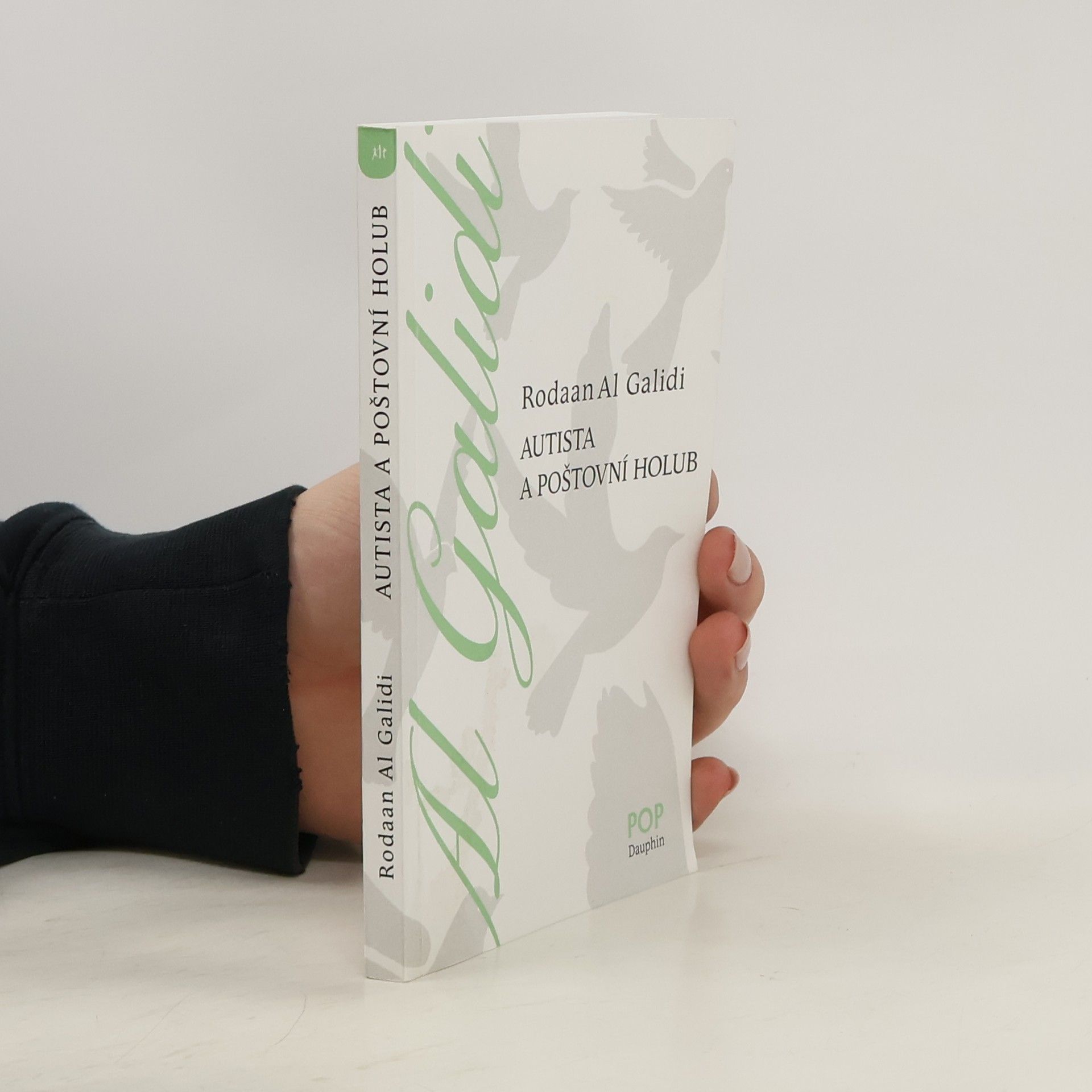Autista a poštovní holub
- 176 stránek
- 7 hodin čtení
Janine ve svých sedmnácti letech podivně otěhotní. Tak trochu zvláštní nehoda, neboť otcem je brčko. Narodí se jí syn Geert postižený Aspergerovým syndromem. Geniální autista.
Rodan Al Galidi je prozaik s iráckým původem, který se věnuje psaní v nizozemštině. Jeho cesta k literatuře nebyla přímá; navzdory vystudování stavebního inženýrství v Iráku se po útěku před vojenskou službou a dlouhé cestě do Nizozemska ocitl v situaci, kdy mu bylo odepřeno legální vzdělávání. Z této nepřízně osudu se však zrodila jeho literární kariéra, když se sám naučil nizozemsky a začal psát. Jeho díla, podepisovaná pseudonymem Rodaan Al Galidi, prozkoumávají témata identity, exilu a hledání domova. Přes své počáteční potíže s integrací si vydobyl uznání jako spisovatel ve Flandrech, což dokazuje jeho pozoruhodnou schopnost proměnit životní překážky v umělecké vyjádření.






Janine ve svých sedmnácti letech podivně otěhotní. Tak trochu zvláštní nehoda, neboť otcem je brčko. Narodí se jí syn Geert postižený Aspergerovým syndromem. Geniální autista.
This feast of Middle Eastern folklore from an Iraqi storyteller is paired with vibrant cut-paper art. The twenty fables and folktales in this illustrated storybook have taken a long journey. Many have roots that stretch across Europe, Asia, and Africa, but when writer and gatherer of tales Rodaan Al Galidi learned them in his homeland of Iraq, it was as Arabic folktales and as part of the Arabic storytelling tradition. When he migrated to the Netherlands, he shaped twenty of those tales into his debut book for children, which was translated to English by Laura Watkinson. Filled with wisdom about love and acceptance, and warnings against folly, these elegantly translated stories of donkeys and roosters, kings, sheikhs, and paupers are exquisitely illustrated by cut-paper artist Geertje Aalders. Beautifully packaged, Arabic Folktales is a rich and varied introduction to the world of Middle Eastern folklore.
Amsterdam Airport, 1998. Samir Karim steps off a plane from Vietnam, flushes his fake passport down the toilet, and requests asylum. Now, safely in the heart of Europe, he is sent to an asylum center and assigned a bed in a shared dorm where he will spend the next nine years. As he navigates his way around the absurdities of Dutch bureaucracy, Samir tries his best to get along with his 500 new housemates. Told with compassion and a unique sense of humor, this is an inspiring tale of survival, a close-up view of the hidden world of refugees and human smugglers, and a sobering reflection of our times.
Rooted in diverse cultural traditions from Europe, Asia, and Africa, this collection features twenty fables and folktales that reflect the Arabic storytelling heritage. Originally learned in Iraq, the tales were adapted by Rodaan Al Galidi after his migration to the Netherlands, showcasing themes of love, acceptance, and caution against folly. Enhanced by Geertje Aalders' cut-paper illustrations, these enchanting stories introduce American readers to unfamiliar characters like donkeys, roosters, kings, and paupers, offering timeless wisdom.
After nine years in a Dutch asylum centre, Samir finally has the chance to start his new life as a European citizen. But it's a full-time occupation for him to discover that integration needs a dog leash and a rubber ball. Happily, this distracts him from what is happening in his native land, Iraq, and from Leda, who stole his heart in the first village he stayed in after being granted refugee status. In this hilarious adventure story, we follow the lovable and gritty Samir as he talks his way into every type of accommodation to be found in this new country full of incomprehensible rules.
Janine, siedemnastolatka, pali trawkę w stodole, z trzema przyjaciółmi gejami. Nagle czuje, że ma owulację – prosi kolegów, by urządzili sobie zawody: „ten, kto najszybciej dojdzie, zostanie ojcem”. Zebrana w misce sperma zostaje wdmuchnięta w Janine za pomocą słomki. Dziewięć miesięcy później na świat przychodzi Geert, genialny autysta. Kiedy staje się światowej sławy lutnikiem amatorem, znanym z tego, że buduje skrzypce ze starych kanap, matka oznajmia mu, że najwyższy czas, by wyprowadził się z domu. Rodaan al Galidi, z wykształcenia inżynier budowlany, uciekł z Iraku, mieszkał w wielu krajach, by w końcu znaleźć się w Holandii. Osiem lat spędził w ośrodku dla uchodźców. Samodzielnie nauczył się niderlandzkiego i zaczął pisać w tym języku. Za powieść „Nie wysyłaj mnie do Staphorst” w 2011 roku uhonorowano go Europejską Nagrodą Literacką; w tym samym roku odmówiono mu przyznania obywatelstwa Holandii. „Sam jestem uchodźcą i wiem, że język fikcji często lepiej oddaje prawdę niż literatura faktu” (Rodaan al Galidi dla „The Guardian”).
Semmier moet vluchten uit Irak en komt naar Nederland. Hij woont op veel plekken in Nederland. Maar altijd tijdelijk. En altijd samen met andere vluchtelingen. In dit verhaal vertelt hij over zichzelf, en al die andere vluchtelingen. Hij vertelt dat niemand mag werken, of naar school gaan, totdat ze een status krijgen.Een verhaal vol humor, Semmier kijkt op een grappige manier naar de mensen om hem heen. Naar de Nederlanders, en naar de andere vluchtelingen.Ik leer nog een taal: het ‘Asielzoekers’. Dat is een mix van Nederlands, Engels, Russisch, Arabisch, Roemeens, Koerdisch, Somalisch, enzovoort. Een voorbeeld: een asielzoeker wil zeggen dat er een oude man op het gras zit. Hij zegt dan: ‘Gras met een man zitten op het grijze haar.’ Of: ‘Oud gras zag een man zitten.’ Soms klinkt het Asielzoekers wel als een gedicht.